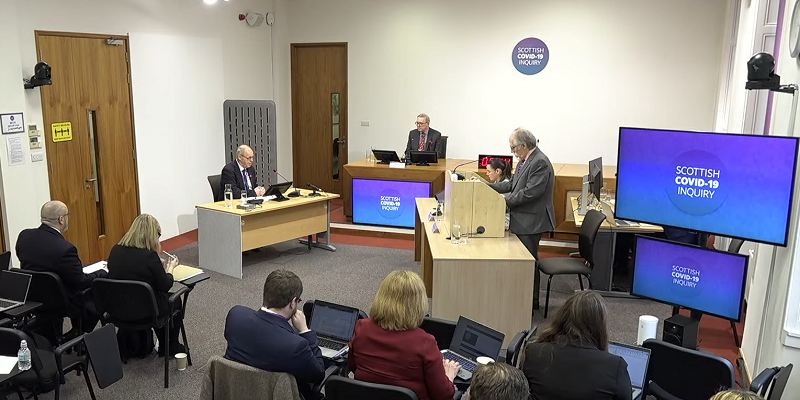News
Impact of the pandemic on nursing staff shared with the Scottish COVID-19 Inquiry
Senior RCN Scotland staff have told the Scottish COVID-19 Inquiry that nursing staff carried the heavy burden of the COVID-19 pandemic as they worked in hospitals, care homes, general practice, the community and beyond.

Connect with us:
Director Colin Poolman and Associate Directors Eileen McKenna and Norman Provan were speaking at yesterday’s (20 March) evidence hearings. They told of the impact on every aspect of the lives of nursing staff. Many of you, registered nurses, nursing support workers and nursing students, faced the dilemma of balancing protecting your patients and residents, your families and yourselves while supporting colleagues in the face of significant staff shortages.
It was clear from the evidence that the full impact of responding to the pandemic on the physical and mental health of nursing staff has still to be felt.
The inquiry heard that while the Scottish government was quick to engage the Royal College of Nursing once the pandemic had been declared, the College had no involvement in any pre-pandemic planning or exercises and that there were significant nursing workforce challenges facing Scotland’s health and social care services before COVID-19 struck.
Director Colin Poolman shared how the RCN’s concerns regarding the airborne transmission - of the virus were not listened to, that at times the guidance on PPE was confusing and supplies were unreliable, and that ultimately the approach to PPE did not meet the requirements recommend by the RCN.
He highlighted that while, in general, financial support for members working in the NHS was resolved reasonably quickly, the pandemic worsened the financial difficulties experienced by many members working in the social care sector who had less clarity around sick pay and shielding.
Associate Director for Employment Relations Norman Provan explained the many and varied routes the RCN used to engage and influence Scottish government including direct involvement in a number of decision-making groups. However, he pointed out that while RCN Scotland was listened to on a number of issues, there were key areas where the Scottish government did not act on the RCN’s concerns. He also reiterated the RCN’s calls for a compensation scheme for those nursing staff who remain impacted by long COVID.
Focusing on the direct feedback the RCN received from members, Eileen McKenna, Associate Director for Nursing, Policy and Professional Practice highlighted the impact on the long-term wellbeing of nursing staff, the particular challenges facing nursing students and staff working in care homes and the approach to infection control across NHS services and care homes. The powerful stories that members shared via Sensemaker illustrated her points.
Director, Colin Poolman said: “The pandemic impacted on every aspect of our members lives both at work and at home. Many of you suffered from COVID-19, often on multiple occasions. Some sadly lost their lives, some continue to suffer from Long COVID.
“Today provided us with the opportunity to share your experiences and the impact the pandemic has had on our profession. We will continue to engage with the inquiry to ensure that lessons are learned.”











